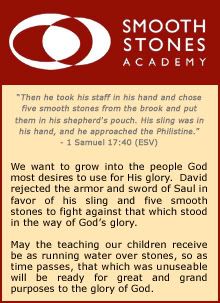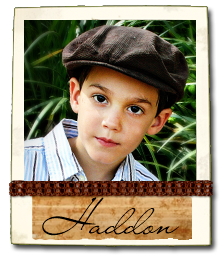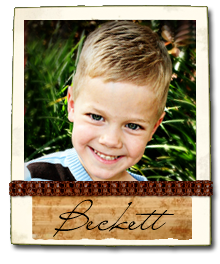After six years on this journey, here are our reasons for homeschooling our boys:
1. Discipleship: One of the greatest privileges of motherhood is getting to pass the baton of faith to the next generation. Homeschooling allows me to oversee my boys’ spiritual formation every day, all the time. Deuteronomy 6:7 says, “You shall teach them diligently to your children, and shall talk of them when you sit in your house, and when you walk by the way, and when you lie down, and when you rise.” We are to take every opportunity to talk to our children about the great love of our God and homeschooling allows those conversations to happen with greater frequency. And honestly it is not just about their growth; homeschooling has been a huge instrument of discipleship in my own spiritual journey.
2. Education is Life: I am borrowing from Charlotte Mason who said “Education is an atmosphere, a discipline, a life.” Our goal is to raise boys who value learning and have a desire to discover and grow all their lives. School isn't what we do from 8:00-3:00. It happens 24/7: in the car driving to a doctor’s appointment talking about how our bodies fight infection and when we are at the beach looking for crabs, clams and hermit crabs to observe. It happens on bike rides when we stop to rest and identify the birds flying by. It happens as we sit in our fort eating lunch and discussing what clouds are floating by and what weather they tell us might be coming. It happens when we are baking a half batch of chocolate chip cookies and the boys are working hard to figure out what is one-half of three-fourths. There is no (artificial) division between learning and fun. It is all learning and it is (mostly) all fun.
3.
Tailoring my Children’s Education: Each child is unique with their own special gifts, talents, abilities and desires. I can design an education plan to meet each of their individual needs and incorporate their desires. If one is on grade level in math, ahead in reading and behind in spelling I can work with them exactly at their level. Rare (if ever) is a child exactly on grade-level in every single subject. My boys will never be frustrated because the teacher had to move on and they didn’t quite get it yet. Conversely, they won’t have to sit bored because others need more drill and review and they are ready to go forward. Also, if one’s interest is sparked by a subject, we have the ability to stop and dig deep; no one is forcing us to move on. About
delight-driven studies I love what Gregg Harris has to say:
In a delight-directed study, a child’s interests are fanned to flame and supported in ways that increase his interest in his studies. The child’s delight is the spark that ignites everything. Once established, like a fire, it is self-sustaining. The student begins to study for his own personal satisfaction, and the fruits of his study begin to flow outward to others.
4. Efficiency: Dictionary.com defines efficient as, "performing or functioning in the best possible manner with the least waste of time and effort." There are so many ways that homeschooling fits this description. When you look at a typical seven hour school day in a traditional setting there is much that is necessary yet takes away from learning. One example is the time is takes to line up 20 wiggly students and walk across the school to get to art/music/PE/lunch/recess/library. I used to estimate that at least 30 minutes of every single school day was spent on these transitions x 5 days a week = 2 1/2 hours of just moving from place to place. Now add in roll call, morning and afternoon announcements, teacher’s time spent dealing with discipline, waiting in the lunch line, assemblies, packing up at the end of the day and much more and you realize there is a very sizeable chunk of time in school not spent learning.
Another way homeschooling is efficient is that we can be systematic in all we learn. We will not repeat a unit on Lincoln and Washington every February around Presidents’ Day. We will not study the life cycle of a frog or butterfly again and again and again. I can and have plotted a course of study that will provide a generous (in scope) and rigorous (in depth) education for my boys: we will study history chronologically from the beginning and work to modern times. We will study ancient history and biology in 1st, 5th and 9th grade each time digging deeper as they mature. Medieval history and earth science/astronomy will follow in 2nd, 6th and 10th. Early modern history (with a focus on American history) and chemistry come in 3rd, 7th and 11th. Finally we will conclude with modern history and physics in 4th, 8th and 12th.
5.
Authentic Learning: It happens best when it is hands on and tied in with every day life rather than read from the pages of a text book. When we do study the life cycle of a butterfly or frog we actually order caterpillars and tadpoles and watch the amazing transformation happen before our eyes. In 4th grade when each boy will study Texas History we will pack up and head to San Antonio after reading
The Boy in the Alamo to see the real thing
. We will tour the state capital in Austin, the
Bob Bullock Texas State History Museum and visit the
Treaty Oak. We will travel to the
San Jacinto Monument where the Texians defeated Santa Anna's Mexican army and then see
Sam Houston’s gravesite in Huntsville.
Of course this can’t always happen (although I would love to take my children all over the globe to experience culture and watch history come alive for them) but it can be much more frequent in a homeschool environment.
5. Excellence and Rigor: I have mentioned some of the details of our planned course of academics above. In addition the boys will have solid foundations in math, reading, spelling and writing. They will all begin learning Spanish in 1st grade, add Latin in 5th and a third language of their choosing in 9th. They will have training in music theory and learn to play at least one musical instrument. They will read and be read to excellent and beautiful literature to grow their minds and prepare them for a study of the great books in high school. They will have classes in logic and rhetoric. As the boys grow older we will use whatever means necessary to maintain this standard of excellence and rigor for their education: online courses, dvd lectures, dual enrollment at a local junior college, tutors and whatever we feel necessary to maintain the course.
6. Family Unity: In a time where the family dinner has become a luxury for many, we enjoy time with our children - time to bond and unite. I know the mantra is "quality not quantity" and that may be true in some things but when it comes to children I am of the opinion that it is quality and quantity. Children need their parents and a lot of them. They need time to process and question and have someone there who can take all the time they need to address those questions. And by keeping them at home we allow that to be more of a reality for our family.
7.
Socialization: This is typically seen as a negative of homeschooling but I consider it a huge positive. My friend, Heidi, at
Mt. Hope Chronicles says, “ In my experience, children in recent times lose their innocence early and mature later, creating a 10-15 year (or longer) adolescence. My hope is to help my children retain their childhood innocence longer and encourage maturation. I want my kids to think for themselves without a herd mentality.” I could not agree more or say it any better. My boys are around people of all different ages, interests and abilities. They do not spend the majority of their time with same age peers day after day. Socialization is primarily the responsibility of the family and I do not want to give that over to a room full of children who by definition should be immature and somewhat foolish:
Folly is bound up in the heart of a child. - Proverbs 22:15
My children have plenty of time to pretend, build, draw, and run. They can finish their lessons with ample time for board games, nature walks and bike rides before soccer practice in the evening. My boys will be involved in community service, spend ample time with adults and family, and be involved in apprenticeships if they find a craft or trade they are interested in pursuing.
8. Flexibility: There is so much to be said for this aspect of homeschooling. In the beginning we schooled four days a week to spend extra time with dh on Friday, which is his day off. We have grown to need half days on Fridays but if we decide on a family outing we can make up lessons on Saturday or do a few extra evening lessons the following week. We have always done a typical 36 to 40 week school year but this year will try a six week on and one week off schedule to allow more time for rest and travel throughout the year - and less time to forget material over a long summer break necessitating needless review at the start of the next year (see #4 above). If someone is sick we can snuggle up and get ahead on our read-alouds, listen to audio books and play chess. If we come across a subject that is fascinating we stop and explore and if we come across an area that is just plain boring for that child we learn what we must and move on.
9. My own growth: One of the things I have absolutely loved most is learning alongside my boys. I have the opportunity to fill in the gaps of my own education! I never had a study in ancient history. Most of my high school teachers were near retirement and tired of the classics. I never read Shakespeare; I just had to memorize Mark Antony’s speech from Julius Caesar, nor did I ever have to read many of the books considered to be high school standards (although I was in honors courses all along the way). I was never taught literary analysis. My knowledge of geography is appalling -but rapidly getting better ;) and even though I took Spanish all the way through Spanish V we joked that the class was mostly about siestas and fiestas.
I have started my own study of the Great Books using
The Well Educated Mind as my guide and am checking out
Teaching Company DVD’s from the library. I am eager for all the future holds in this regard.





















